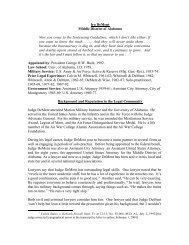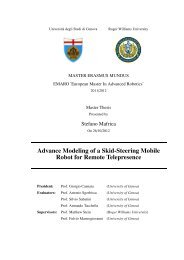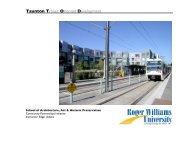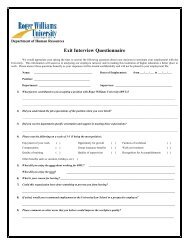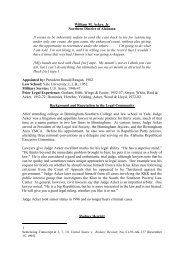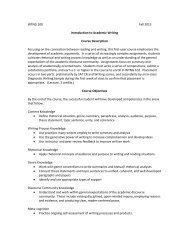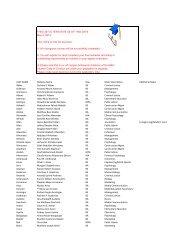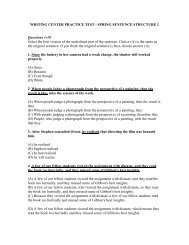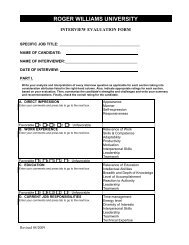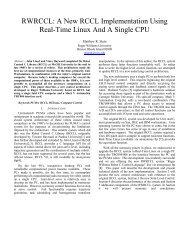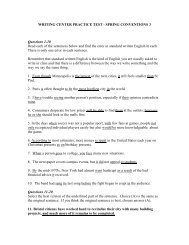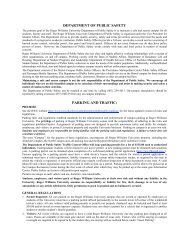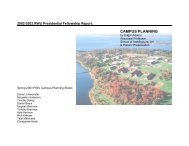SECCM Assessment Plan - Roger Williams University
SECCM Assessment Plan - Roger Williams University
SECCM Assessment Plan - Roger Williams University
Create successful ePaper yourself
Turn your PDF publications into a flip-book with our unique Google optimized e-Paper software.
Computer Science Program Outcomes<br />
Computer science program outcomes correspond to the knowledge, skills and behavior that are we<br />
expect our graduates to possess at the time of their graduation. These outcomes are established and<br />
periodically updated based on constituency input. The outcomes for the computer science program<br />
are:<br />
a. demonstrated capabilities in abstraction, algorithm analysis, computer theory computer<br />
organization and programming language concepts<br />
b. an ability to draw from progressively more complex design-build-test experiences in solving<br />
new problems in individual and team settings<br />
c. an ability to apply quantitative math-science-engineering knowledge relevant to specific<br />
problems<br />
d. a recognition of the need for, and an ability to engage in lifelong learning<br />
e. an understanding of the impact of CS technologies in applied settings (e.g. cultural, social,<br />
ethical)<br />
f. an appreciation of the complexities of designing and implementing a software solution that<br />
meets customer requirements<br />
g. an ability to use suitable writing and speaking skills as part of analyzing, designing,<br />
implementing, testing and fielding solutions<br />
These program outcomes are related to the educational objectives as presented in Table 3.11.<br />
Table 3.11 Computer Science Program Educational Objectives linked to Computer Science<br />
Program Outcomes<br />
• = Weak Relationship • = Moderate Relationship • = Strong Relationship<br />
a – g Outcomes<br />
a. demonstrated capabilities in abstraction, algorithm analysis,<br />
computer theory, computer organization and programming language<br />
concepts<br />
b. an ability to draw from progressively more complex design-buildtest<br />
experiences in solving new problems in individual and team<br />
settings<br />
c. an ability to apply quantitative math-science-engineering knowledge<br />
relevant to specific problems<br />
d. a recognition of the need for, and an ability to engage in lifelong<br />
learning<br />
e. an understanding of the impact of CS technologies in applied<br />
settings (e.g. cultural, social, ethical)<br />
f. an appreciation of the complexities of designing and implementing a<br />
software solution that meets customer requirements<br />
g. an ability to use suitable writing and speaking skills as part of<br />
analyzing, designing, implementing, testing and fielding solutions<br />
Objectives<br />
1 2 3 4<br />
• • • •<br />
• • • •<br />
• • • •<br />
• • • •<br />
• • • •<br />
• • • •<br />
• • • •<br />
54



